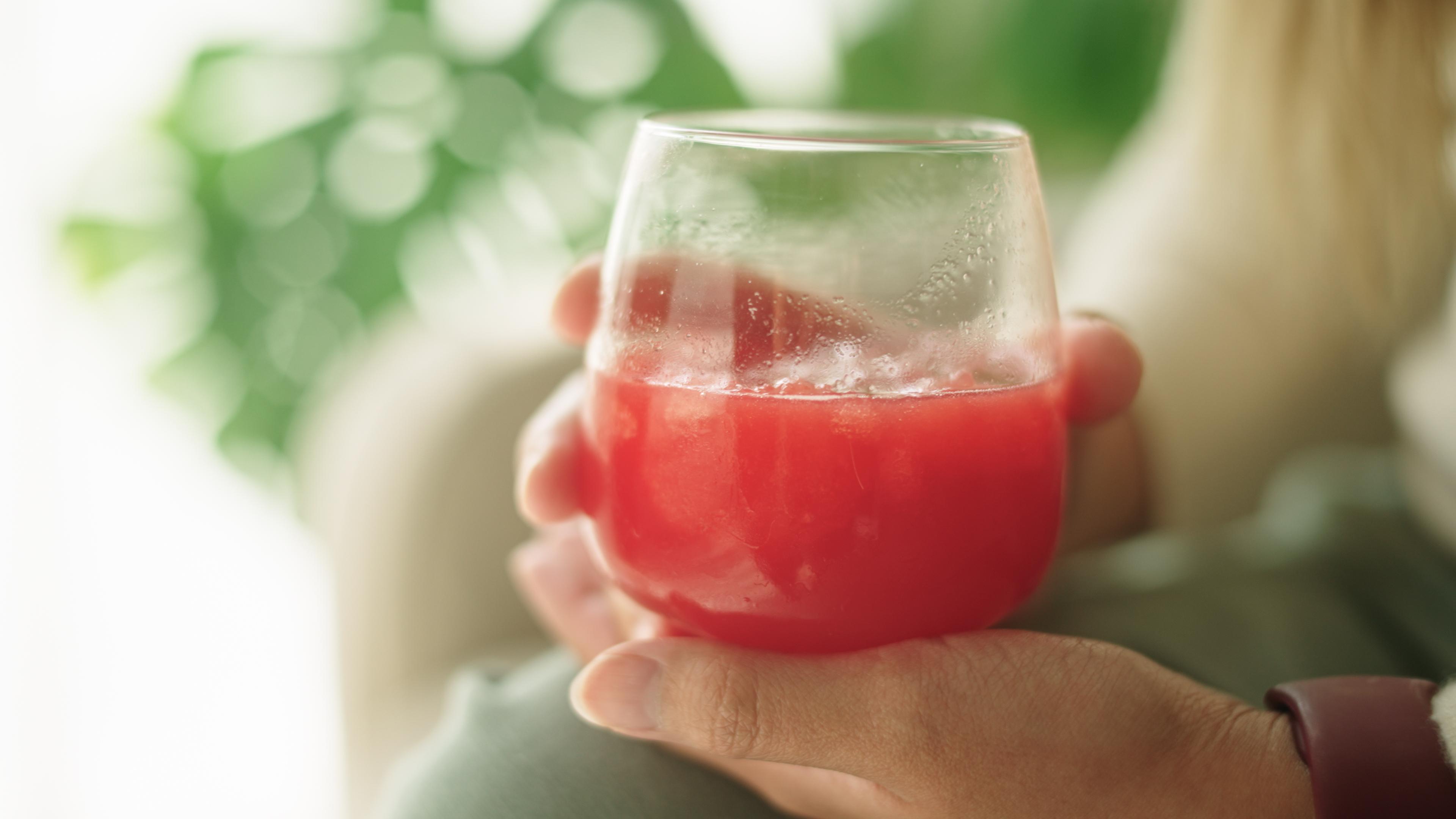Health Benefits of Watermelon Juice

Lindsay Knake
| 3 min read

Watermelon is a summer favorite. This juicy, sweet fruit makes a fun and thirst-quenching dessert on a hot day.
Recently, watermelon juice has become more popular as a refreshing beverage. Here is a look at the health benefits of watermelon and its juice and whether it’s a healthy option to add to your diet.
Health benefits of watermelon
This fruit, which originated in Africa, contains a lot of water, and no fat or protein. It’s also low in calories. Per the U.S. Department of Agriculture, one cup of diced watermelon contains:
- 46 calories
- 9 grams of sugar
- 865IU of vitamin A
- 12 mg of vitamin C
- 15 mg of magnesium
- 170 mg of potassium
These vitamins and minerals are important for overall health and well-being.
Vitamin A supports cornea health, making watermelon a good choice for eye health, according to the Cleveland Clinic. The vitamin C in watermelon supports the immune system and collagen production, which is beneficial for your skin.
Potassium is an electrolyte that helps maintain fluid balance and muscle function. It can help lower blood pressure, according to the Mayo Clinic.
Lycopene gives fruit and vegetables their red color, and watermelon contains more than any other. This antioxidant may slow cell damage and offer protection against chronic illnesses such as cancer and Type 2 diabetes.
There are people who may want to limit their intake of the fruit. Watermelon has a high glycemic index, so people with diabetes should eat it in moderation or combine it with a meal rich in healthy fat and protein. If you have irritable bowel syndrome or need to eat low-FODMAP foods, it may be a good idea to skip watermelon because its sugars can cause digestive problems such as bloating and diarrhea.
If you have pollen allergies, watermelon may give you side effects such as difficulty breathing or hives, according to the Cleveland Clinic.
While online trends have purported benefits of a watermelon juice detox or cleanse, this is not the case, according to the Cleveland Clinic. Eating a nutritious diet with vegetables, fruit, whole grains and lean meat is the best way to support kidney and liver function, which naturally rid your body of toxins.
How to make watermelon juice
Watermelon is already 92% water, making it a good source of hydration on warm days. The high water content also makes it easy to turn into a beverage.
While you may find watermelon juice at the store, it is simple to make at home. Liquify chunks of fresh, cold watermelon in a blender and pour it into a glass. If you have a melon with seeds, you can strain the juice through a fine-mesh sieve before drinking. For the most health benefits, however, keep the pulp in the juice.
You can drink plain watermelon juice or blend it with water and other berries, vegetables and herbs such as:
- Strawberries
- Lemon or lime
- Cucumbers
- Mint
For a fun treat, freeze the watermelon juice into popsicles.
Image: Getty Images
Related:





